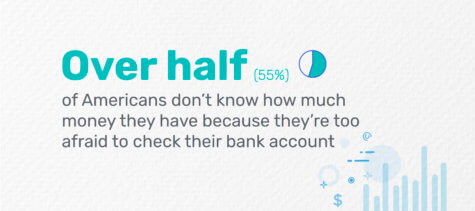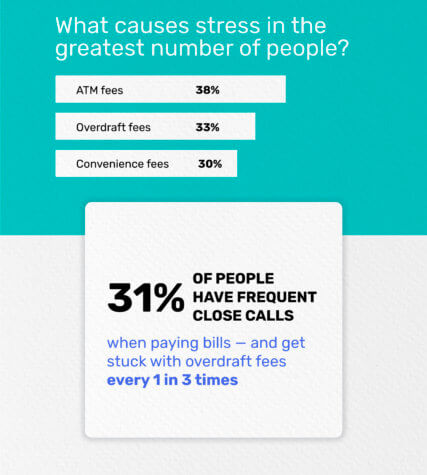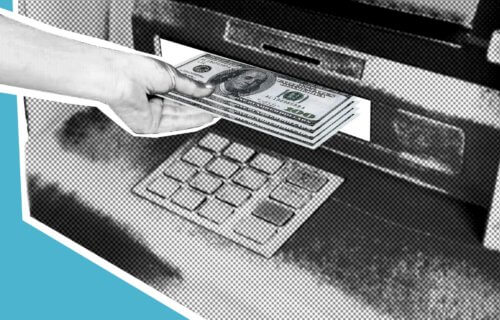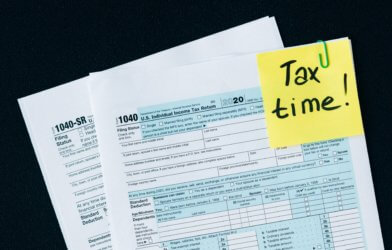NEW YORK — Whoever said “ignorance is bliss” probably had a low bank balance, if you consider the results of a new study. Roughly half of Americans aren’t sure how much money is in their bank account — and that’s because they say they’re too afraid to find out.
According to a recent poll of 2,000 people, 55 percent admit fear keeps them from monitoring their bank account as regularly as they should. Three in five (59%) often feel an intense anxiety spike just before they do check. Another 60 percent say living through the COVID-19 pandemic has made that moment feel even worse than it did previously.
Despite this, the average respondent will fight apprehension and check their account balance four times a week. That’s still over 200 times in a year.
The survey, conducted by OnePoll on behalf of Cushion.ai, also finds 31 percent frequently experience “close calls” where they didn’t know if they’d have the right amount to pay a scheduled expense in time. In fact, 38 percent of close-callers admit that it often ends in overdraft fees for them.
Frustration over fees
 It’s no surprise that overdraft fees cause stress for 33 percent of respondents. They’re second only to the number of people who feel similarly towards ATM or bank withdrawal fees (38%). In fact, on average, respondents lose $48.31 a year in ATM fees. Respondents say they’re willing to go up to 16 minutes out of their way to avoid those charges.
It’s no surprise that overdraft fees cause stress for 33 percent of respondents. They’re second only to the number of people who feel similarly towards ATM or bank withdrawal fees (38%). In fact, on average, respondents lose $48.31 a year in ATM fees. Respondents say they’re willing to go up to 16 minutes out of their way to avoid those charges.
Four in 10 people have flat-out asked for or demanded a discount from service providers in order to save money. Another 27 percent have called to argue about a charge.
When arguing with the banks doesn’t work, people will go to extraordinary lengths to save buck. That includes people unplugging appliances to lower their electricity bills (37%) and switching service providers entirely (38%).
“Reducing waste is one of the most effective ways to improve your financial situation,” says Paul Kesserwani, founder and CEO of Cushion, in a statement. “So if you overpay for your electricity or get hit with an overdraft fee, you can do something about it. People tend to shy away from negotiating bills and fees because it can be time-consuming and exhausting. As a result, they leave money on the table. Most things are negotiable. Banks, retailers, and billers would rather give you money back than lose you as a customer altogether.”
Living paycheck to paycheck is a stressful experience
 Meanwhile, Americans are surprisingly confident in their ability to guess their bank account balance off the top of their heads. While only 19 percent bet they’d know the exact balance, 84 percent think they could get within $200 or closer.
Meanwhile, Americans are surprisingly confident in their ability to guess their bank account balance off the top of their heads. While only 19 percent bet they’d know the exact balance, 84 percent think they could get within $200 or closer.
Out of those polled, only 15 percent use automatic payments, or “autopay,” to handle regular expenses — including twice as many people on semi-monthly income schedules (27%) compared to weekly (14%) and biweekly ones (13%). In fact, those on weekly income schedules were most likely to feel anxiety before checking their bank account (80%). Those on bi-weekly (65%) and semi-monthly (55%) schedules finished far behind.
In addition, respondents who get paid weekly were also most likely to worry about making the minimum payment on their credit cards (68%); a much higher rate than the overall average (41%).
“It’s no surprise that employees who get paid weekly are more stressed about their finances right now,” says Kesserwani. “Most of these folks are paid by the hour with no guarantee that they will make enough money each week to cover their bills. Income volatility, especially during the age of COVID-19, paired with financial and emotional stress inhibits these workers from advocating for themselves, whether it’s against banks, billers, creditors, or otherwise.”
Regardless of how they get paid, three out of five (66%) agree that if it were possible to do so, they would only use cash for the rest of their lives and never bother with another financial institution again.



